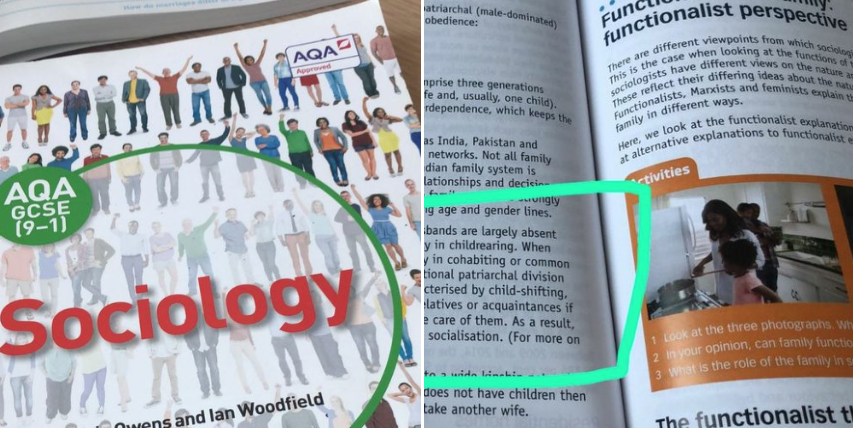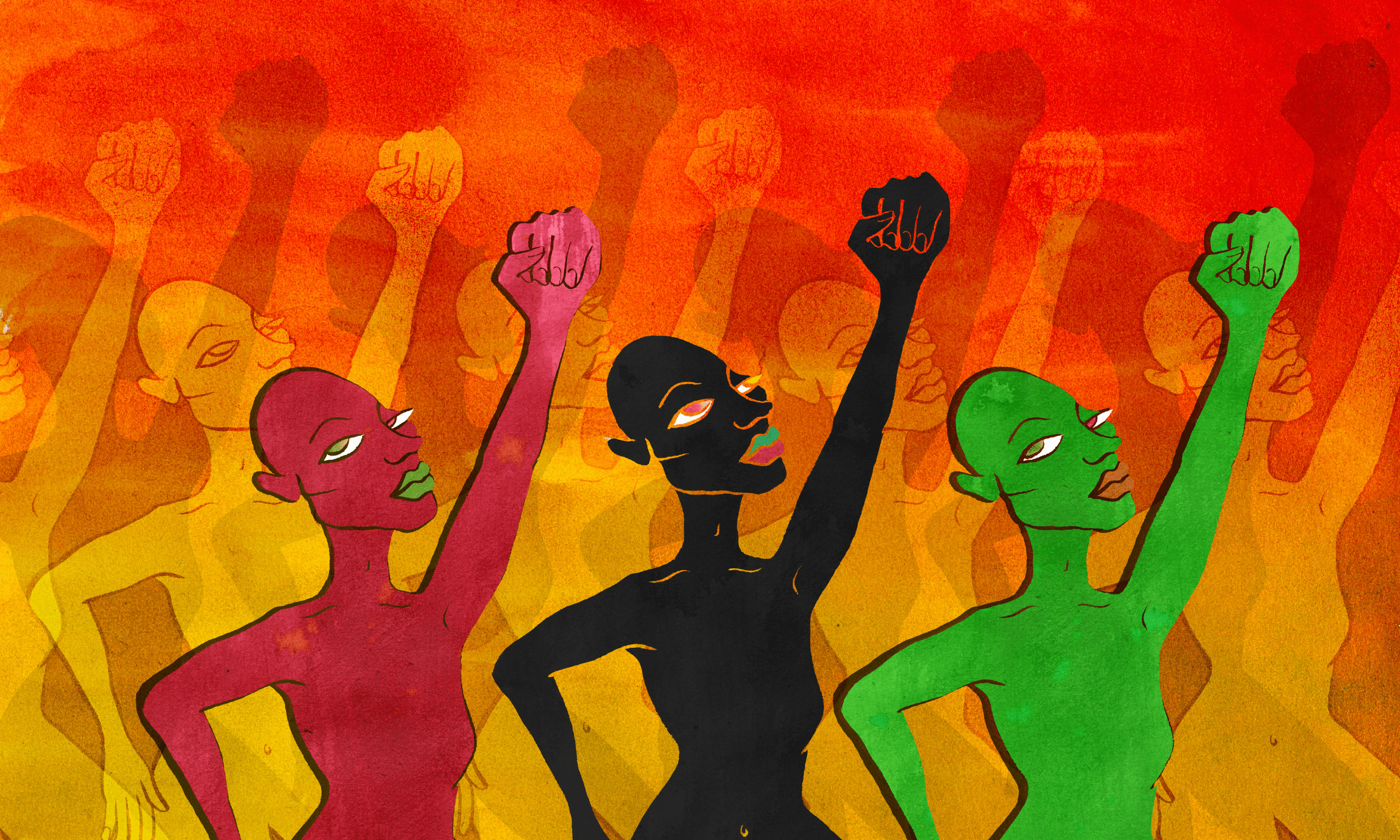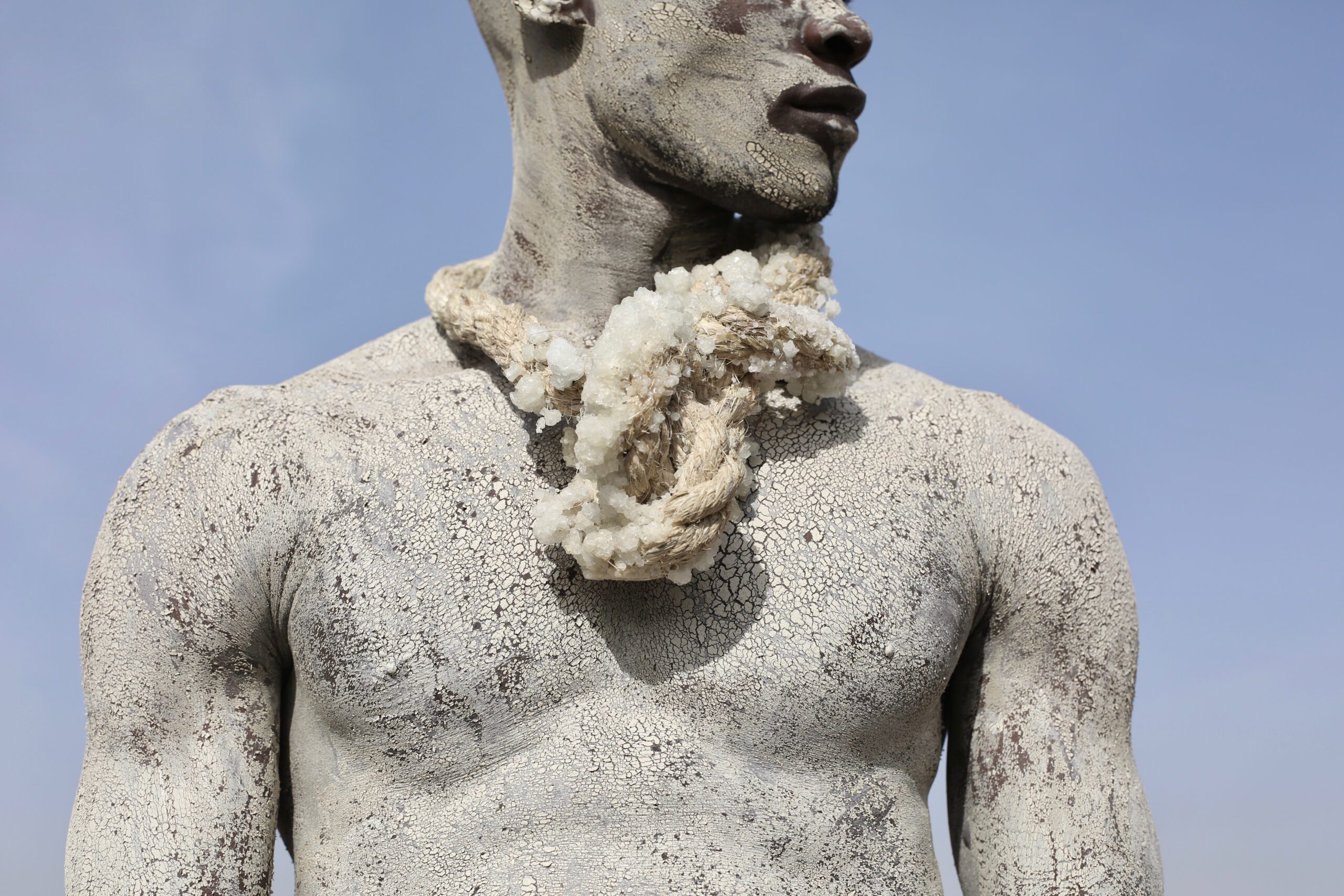
image from Twitter/@eophotographyuk
After sparking a huge backlash from MPs and campaign groups alike, a GCSE textbook containing racist stereotypes about Caribbean families is no longer being supplied for sale. A passage in AQA’s GCSE (9-1) Sociology stated Caribbean men were “largely absent” within the family dynamic, without providing any scientific evidence or context to support this claim.
The divisive passage in AQA’s GCSE (9-1) Sociology read: “In Caribbean families, the fathers and husbands are largely absent and women assume the most responsibility in childrearing. When men and women live together, it is usually in cohabiting or common law relationships that reproduce the traditional patriarchal division of labour. The family system is also characterised by child-shifting – that is, the passing of children to other relatives or acquaintances if the parents find themselves unable to take care of them. As a result, multiple women are involved in childhood socialisation.”
When freelance photographer Eddie Olaleye posted this inflammatory passage and challenged AQA for empirical data substantiating the claim, reactions of widespread indignation and disappointment came flooding in. Labour MP David Lammy lambasted the passage for its “sweeping generalisations about African Caribbean people” reflecting, “sometimes it feels like little has changed since I was at school in the 80s”. Shockingly, this textbook was published by Hodder Education as recently as 2014 and republished in 2017. On both occasions this passage featured. For any critic claiming institutional racism doesn’t live on – think again.
This isn’t just about polluting young minds with prejudice; it’s about stigmatising and shaming a community on unfounded claims – no Caribbean child should have to endure sitting in a classroom and being taught this.
Unsurprisingly, the blame game has begun, with neither AQA nor Hodder Education holding themselves accountable. A statement issued by an AQA spokesperson claimed: “we absolutely don’t agree with the use of stereotypes…We don’t publish any textbooks ourselves, but we’re speaking with the publisher of this book about these concerns.” Meanwhile publishers Hodder Education declared, “we are taking this feedback very seriously; we will be working with the authors and reviewing the entire textbook as a result of the concerns raised.”
“They choose to dissolve the institutional ‘we’ which yields them so much power, into a ‘not me’, at their first convenience”
AQA blames Hodder Education, Hodder Education blames the authors, the authors blame the brief they were given, and the cycle repeats. As is often the case with instances of institutional racism, no one puts their hands up and admits they screwed up, if it puts them at risk of being called the “R” word. They choose to dissolve the institutional “we” which yields them so much power, into a “not me”, at their first convenience. But educators can’t play ignorant when it suits them – all parties must accept the part they played in this. Are Hodder Education seriously suggesting their staff don’t bother reading the contents of the books they publish? Are AQA asserting that their staff don’t read their texts before they approve them? And given this seems highly unlikely, it’s all the more unnerving that this tone-deaf passage has gone undetected by so many ears.
Hodder Education presenting such prejudice as evidence discredits and homogenises the entire Caribbean community in a manner which couldn’t be more othering. As Lammy highlights, the Caribbean’s various ethnic groups live in “wildly different socio-economic contexts” and such texts, “accompanied by no relevant data, teach students the opposite of critical thinking: lazy generalisations”.
Lazy generalisations are exactly what these spurious claims are. Gingerbread illustrates only 21% of families of black or minority ethnic backgrounds are single parent families, in comparison with 16% nationally. And while black and minority ethnic communities may rate proportionally higher, this category is not exclusive to Caribbean communities and does not specify gender. In fact, we are seeing broken families becoming increasingly prevalent throughout our society, so when claims like these aren’t put into context, they become breeding grounds for ignorant presumptions.
“They’re skirting around the issue, because the history is not pretty”
Sociology is all about examining how the relationships we form, our cultural identity, and the lives we lead are all dependent on a community’s historical and social context. AQA Sociology is not only doing Caribbean communities a disservice, but they’re also disrespecting the subject they’re supposed to be teaching. They’re skirting around the issue, because the history is not pretty – it extends back to familial displacements to facilitate the transatlantic slave trade; back to the lack of British investment in colonial islands, pressing economic times and Windrush; back to families not being afforded the luxury to remain as one unit because there’s work to be found abroad, a decision made with their children’s best interests at heart. It’s a history of colonialism, enslavement, racism; a history comprised of ugly words and the shameful past Britain would rather not address. If only our education system addressed its darker past, things might be different.
But this news story is the wake-up call our education system needs. How many other books masquerading racial prejudice as cold, hard facts are still being circulated? We clearly can’t rely on the likes of AQA to clean up this postcolonial mess, so we must continuously call out and campaign for change ourselves. We need a revamp of an outdated system which flagrantly promotes texts with colonial outlooks and attitudes; we need frank and open discussions about the uncomfortable parts of different minority groups’ past, and the roles the Western world played in these.
We need to revolutionise our education system – a good place to start would be making The Good Immigrant compulsory reading for all students, because no book so articulately yet plainly deconstructs racist stereotypes such as these.
While this news story stresses the importance of Black History Month and how it must be used as a platform to inform and educate others to reclaim black history, the daily struggle to achieve racial equality has never been clearer. Because even in today’s classrooms, children are being taught from discriminatory textbooks which repeatedly place minorities on the wrong side of history.









